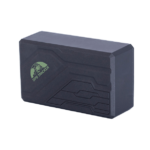Industrial (corporate) espionage refers to all types of activities through which a company obtains some important information regarding its competitor. In most cases, economic espionage is initiated by governments and is usually international. On the other hand, corporate espionage is typically carried out domestically for financial gain and a better market position.
Industrial espionage has a long history — in fact, it dates back to the beginnings of trade.
One of the earliest examples of corporate espionage dates back to 1712, when a French Jesuit priest, François Xavier d’Entrecolles, revealed the production techniques of Chinese porcelain in his two letters from China. This later led to the mass production of porcelain in Europe.
You may also be familiar with an example of industrial espionage that occurred at the end of the 18th century during the industrial revolution. Initially, France engaged in numerous undercover operations in Great Britain, hoping to obtain detailed information and replicate its technological innovations.
During the 19th century, Britain employed this type of espionage as well to learn the mysteries of Chinese tea. Namely, an Indian company hired a Scottish botanist and adventurer, Robert Fortune. His mission was to dress up as a merchant, smuggle seeds and plants from China to India (which was a British colony back then), and learn the secret methods of preparation. He succeeded, and Chinese tea production soon moved to India.
Even large companies can be targets of corporate espionage. For instance, in 1997, Gilette was a victim of a spying scheme when one of the former employees of Wright Industries Inc stole some confidential information about the shaving system that Gilette had developed. He shared it with its competitors (Bic, American Safety Razor Company LLC, and Warner-Lambert Co); however, he was eventually caught and, after pleading guilty, sentenced to 15 years in prison.
Kodak faced a similar scenario, as well. Namely, a former manager seized confidential corporate documents and tried to sell them to its competitors.
In 2011, Chinese hackers managed to break into the systems of 71 multinational companies worldwide (including the ones from the oil industry, United Nations, and MOC) as part of cyber spying operations called the Night Dragon and Aurora. As a result, they obtained bidding rights and valuable company information that many competitors would pay plenty of money for.
Corporate espionage has always been common in the automobile industry. A recent example is the development of electric vehicles.
In addition, many movies are based on industrial espionage, such as The Wolf of Wall Street, Cypher, Inside Man, The Big Short, Company Business, Paranoia, Enron: The Smartest Guy in the Room, etc.
In our spy equipment catalog, you can find some devices and software solutions that can help you protect yourself from industrial espionage, such as a phone monitoring program, PC monitoring software, and a large selection of eavesdroppers and spy cameras.


